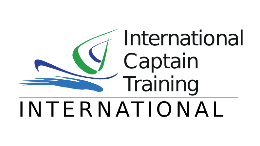The Engineer 750 kW course is designed to provide students with the advanced knowledge and practical skills required to operate and maintain marine engines up to 750 kW (1000 HP). This course is ideal for individuals seeking to start or advance their career in marine engineering, working on yachts, commercial vessels, and offshore platforms.
Engineer 750 kW Course
Course Objectives
- Master the operation and maintenance of marine engines up to 750 kW.
- Develop advanced troubleshooting and repair skills.
- Understand the principles of marine engineering and engine systems.
- Gain practical experience in engine room safety and management.
Prerequisites
- Minimum age: 18 years.
- Basic knowledge of marine engineering or completion of the Oiler course.
- Basic understanding of mechanical systems.
Course Duration
- Theory and Practical: 15 days (approximately 120 hours).
Course Content
- Introduction to Marine Engineering
- Overview of marine engineering and vessel types.
- Roles and responsibilities of a marine engineer.
- Career pathways and opportunities in marine engineering.
- Marine Engine Systems
- Detailed study of marine engines up to 750 kW.
- Fuel, lubrication, cooling, and exhaust systems.
- Electrical systems and power management.
- Propulsion systems and transmission.
- Engine Operation and Management
- Engine start-up, operation, and shutdown procedures.
- Monitoring and controlling engine performance.
- Engine room management and watchkeeping duties.
- Understanding and using engine control systems.
- Maintenance and Troubleshooting
- Routine maintenance schedules and procedures.
- Diagnosing and troubleshooting engine problems.
- Repair techniques for common engine faults.
- Use of diagnostic tools and equipment.
- Safety and Emergency Procedures
- Engine room safety protocols and personal protective equipment (PPE).
- Fire prevention and firefighting in the engine room.
- Emergency response and procedures.
- Handling hazardous materials and waste management.
- Practical On-Board Training
- Hands-on practice with marine engines and systems.
- Performing routine maintenance and repairs under supervision.
- Real-world troubleshooting and emergency drills.
- Engine performance monitoring and adjustment.
Assessment
- Theory Exam: Multiple-choice questions covering marine engineering principles, engine operation, maintenance, and safety protocols.
- Practical Exam: Hands-on assessment of engine operation, maintenance tasks, troubleshooting, and emergency procedures.
Certification
Upon successful completion of the course and exams, students will receive the ICT International Captain Training Academy Engineer 750 kW certificate, recognized internationally
